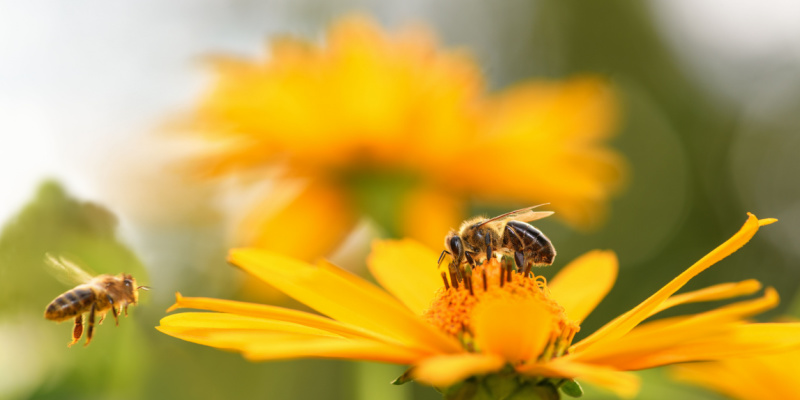When it comes to buzzing insects, bees and wasps are often associated with warm weather and outdoor activities. However, for residents of Nashville, Tennessee, it’s essential to understand the local insect population and whether bees and wasps are a common sight in the area. Let’s learn about the prevalence of bees and wasps in the Nashville area, their ecological importance, and how to coexist with these beneficial yet intimidating creatures.
1. Bee Population in Nashville
Bees play a crucial role in our ecosystem as pollinators, contributing to the reproduction of flowering plants and ensuring food production for humans and wildlife alike. Bees are relatively abundant in the Nashville area. With its diverse flora, the city provides an attractive environment for various bee species. Honeybees, bumblebees, and solitary bees can all be found buzzing around Nashville’s parks, gardens, and green spaces. These gentle pollinators are generally not aggressive unless threatened, making them safe to observe and appreciate.
2. Wasp Population in Nashville
Wasps, on the other hand, have a reputation that often precedes them due to the presence of certain aggressive species. However, it’s essential to understand that not all wasps are the same. While social wasps, like yellow jackets and paper wasps, can be more territorial and potentially sting if disturbed, solitary wasps are generally less aggressive and tend to focus on hunting other insects. In Nashville, the presence of both social and solitary wasps is not uncommon, but they are not overwhelmingly abundant either.
3. Navigating Bee and Wasp Encounters
If you come across bees or wasps in Nashville, it’s crucial to remain calm and take appropriate steps to coexist peacefully with these insects. Here are some guidelines to follow:
Maintain Distance
Bees and wasps are less likely to sting if you give them space. Avoid swatting or flailing your arms, as this may provoke them. Respect their foraging areas and nesting sites.
Wear Protective Clothing
If you’re engaging in activities that may attract stinging insects, such as gardening or eating outdoors, consider wearing long sleeves, pants, and closed-toe shoes. This attire can minimize the chance of getting stung.
Avoid Strong Fragrances
Bees and wasps are attracted to floral scents, perfumes, and sweet-smelling lotions. Minimize the use of such fragrances when spending time outdoors to avoid drawing unnecessary attention.
Seek Professional Help
If you notice a large number of bees or wasps congregating in a specific area, it’s advisable to contact a local pest control professional who can safely relocate them if necessary.
What To Do If You Get Stung
If you get stung by a bee or wasp, there are several steps you can take to alleviate the discomfort and promote healing. Here’s what you should do:
1. Remove the stinger: If you can see a stinger lodged in your skin, gently scrape it off horizontally with a flat-edged object like a credit card. Avoid using tweezers or squeezing the stinger, as it may release more venom into your skin.
2. Wash the affected area: Clean the sting site with mild soap and water to reduce the risk of infection.
3. Apply a cold compress: Immediately after the sting, apply a cold compress or ice pack wrapped in a cloth to the area for about 10 to 15 minutes. This can help reduce pain, swelling, and inflammation.
4. Use topical treatments: Applying a topical cream or ointment containing hydrocortisone or calamine lotion to the sting site may help relieve itching and inflammation. You can find these products at most pharmacies.
5. Monitor for severe allergic reactions: In some cases, individuals may have an allergic reaction to bee or wasp stings. If you experience symptoms such as difficulty breathing, chest tightness, swelling of the face or throat, dizziness, or hives spreading to areas beyond the sting site, seek immediate medical attention or call emergency services.
Bees and wasps are indeed common in the Nashville area, playing vital roles in pollination and insect control. While some caution is warranted when encountering stinging insects, understanding their behavior and following simple guidelines can help foster peaceful coexistence. If you need extra help controlling the bee or wasp population at your Nashville home, contact All Pest Solutions for help.

